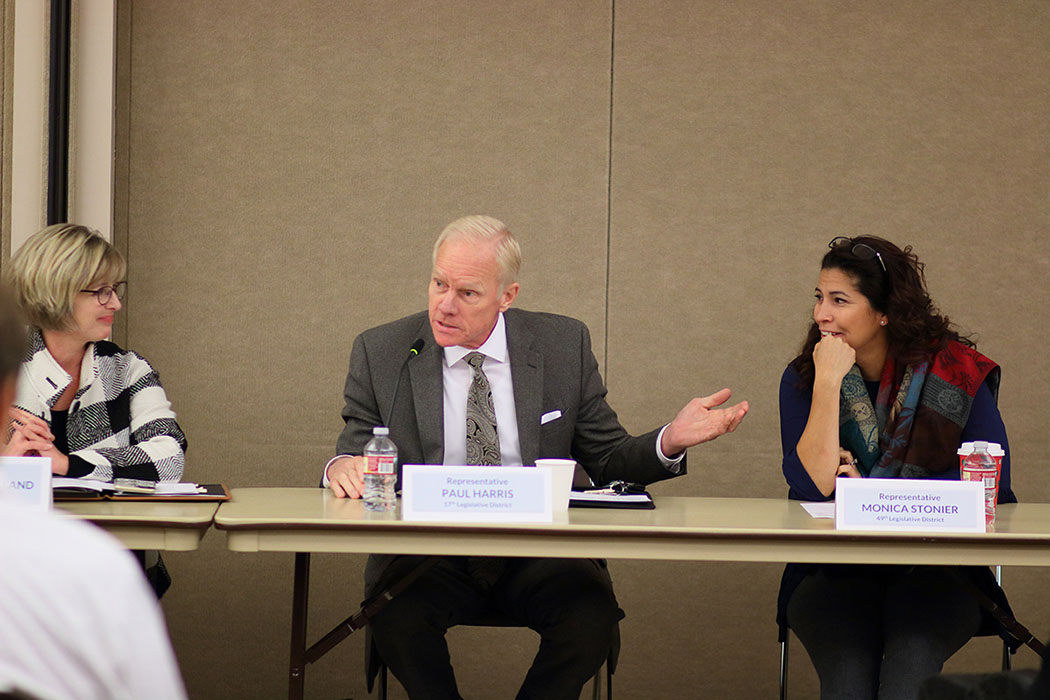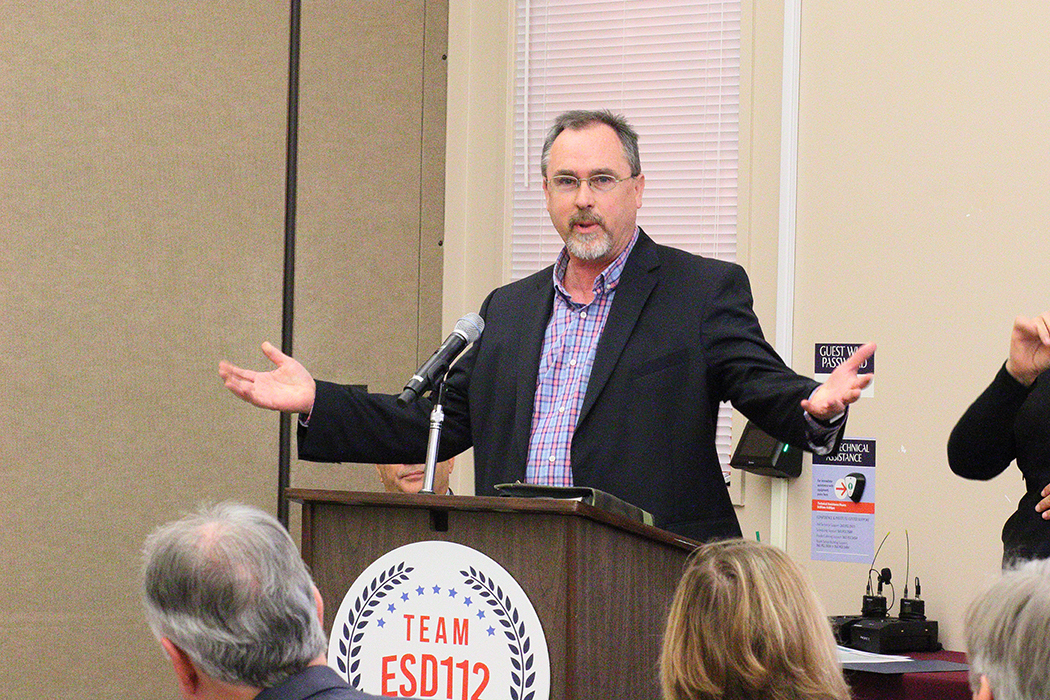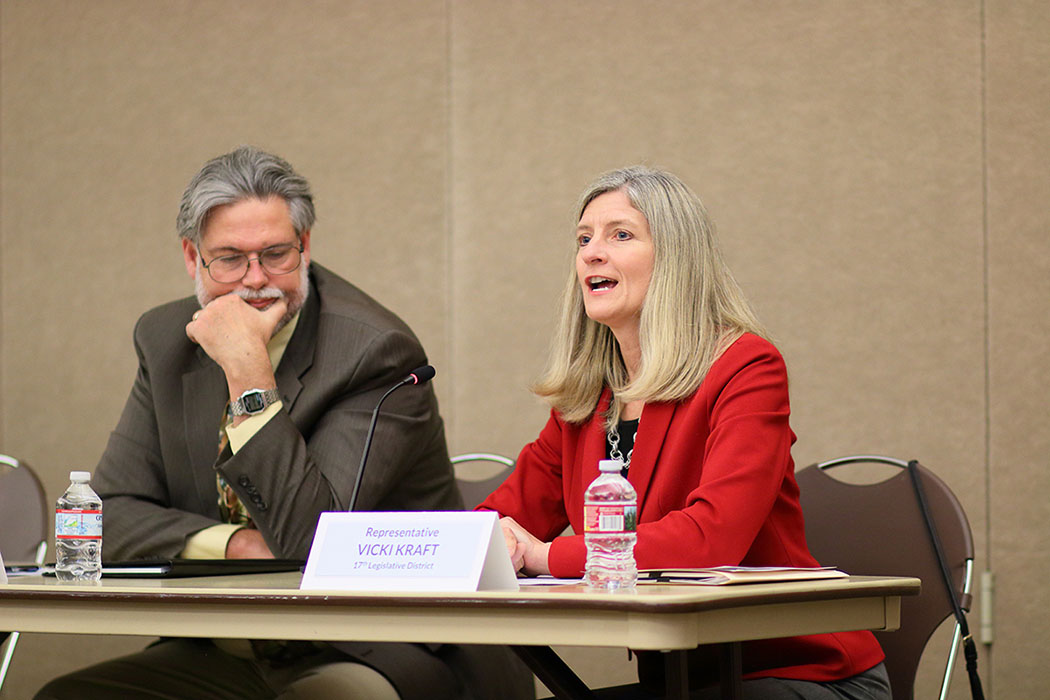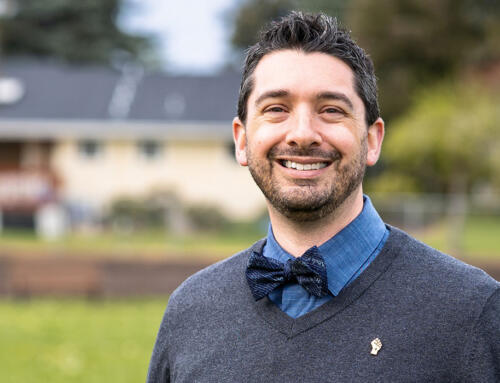On Friday, November 15, more than 60 education leaders and eight Washington State legislators attended the ESD 112 Legislative Forum. The forum offers school district superintendents and other education leaders the opportunity to share the issues their districts are facing and appeal to legislators for support in the upcoming legislative session. Legislators in attendance were:
- Senator Curtis King (R, 14th district)
- Representative Paul Harris (R, 17th district)
- Representative Vicki Kraft (R, 17th district)
- Senator Dean Takko (D, 19th district)
- Representative Jim Walsh (R, 19th district)
- Representative Ed Orcutt (R, 20th district)
- Senator Annette Cleveland (D, 49th district)
- Representative Monica Stonier (D, 49th district)
“The forum provides legislators the opportunity to hear directly from our school district leaders about how state and local education legislation is affecting their districts and education as a whole,” said ESD 112 Superintendent Tim Merlino.
Battle Ground Public Schools Superintendent Mark Ross, emceed the event. Opening remarks were delivered by Evergreen Public Schools board member and Washington Association of School District Administrators (WASDA) member Rob Perkins and ESD 112 Chief Business Officer Gavin Hottman. Legislators introduced themselves and shared what they were most interested in learning at the forum.

Representatives Paul Harris (R, 17th district) and Monica Stonier (D, 49th district) share the same committees in the Legislature and discussed how they work together across the aisle to get things done.
Superintendents from around the region then presented examples from their districts on the main priorities that education leadership has for the legislature. Those priorities are:
Fully fund the cost of the School Employees Benefits Board (SEBB)
School district participation is required in the state’s insurance program (the SEBB), but the state only funds a portion (85 percent) of the cost for school districts. Many districts have been forced to run local levies to pay for programs and services that used to be covered under state funding that the SEBB now uses.
Update staff allocation formulas
School districts receive state funding for staff positions as part of the Prototypical School Funding Model. Unfortunately, the model is outdated, funded at artificially low ratios and the need for student supports has grown exponentially.
Provide consistent, equitable and ample education resources
Underfunding and inequity continue to be concerns in the following critical areas: a) fully fund special education, b) provide sustainable funding for small school districts, and c) support school capital facility needs.
Define the duties and expectations of teachers
Following state funding enhancements and local collective bargaining over the past two years, teacher salaries have increased to competitive, market levels; however, the legislature has not clearly defined the minimum professional duties and expectations for teachers.

Wahkiakum School District Superintendent Brent Freeman gave examples of why the Prototypical School Funding Model is a poor fit for small districts in particular.
As part of the presentation of the legislative priorities, solutions to each of the priorities were offered. Legislators were given the opportunity to ask questions, provide feedback and share challenges they face in Olympia.





 ESD 112 equalizes educational opportunities for learning communities through innovative partnerships, responsive leadership, and exceptional programs.
ESD 112 equalizes educational opportunities for learning communities through innovative partnerships, responsive leadership, and exceptional programs.